Village tells story of literature
Creative presentation of a writer's works is a popular tourist attraction, He Chun and Guo Yanqi report in Changsha.

Twelve Sinologists from various countries including Spain, Serbia and Iran recently visited Qingxi village in China's Hunan province, to retrace the footsteps of modern Chinese novelist Zhou Libo (1908-79) and explore how local literature resonates on a global scale.
On a project titled Discovering Qingxi on the World Literature Map, the three-day journey brought the Sinologists and Hunan writers together to explore the province's literary roots and discuss the intersection of locality and universality of literature.
Qingxi village is the birthplace of Zhou and the settings of his classic novel, Shanxiang Jubian (Great Changes in a Mountain Village). Today, it has become a popular cultural destination to millions of visitors.
The village features Zhou's renovated former residence, a museum of signed works by contemporary Chinese writers, and 22 reading rooms converted from village homes and operated by local residents. The reading rooms honor various writers, publishers and genres with artifacts and copies of their works. They are popular with both residents and visitors.
Participants described the visit as an experience that brought literature to life.
"I felt I was stepping into the pages of novels I had read years ago," said Ana Jovanovic, a Serbian scholar who started reading Chinese literature at 15 and was captivated by depictions of rural life. "The surroundings in Qingxi resembled the landscapes I had imagined while reading the books."
During their journey, the Sinologists contributed signed translated editions of Chinese literary works to the newly launched Literary Shelf of Global Sinologists initiative in Qingxi. It adds to Qingxi's growing reputation as a literary village with international ties.
Zombory Klara, a Hungarian scholar, donated a 1951 Hungarian edition of Zhou's Baofeng Zhouyu (Mighty Storm), published in Budapest.
A recipient of the Special Book Award of China, she has spent over two decades studying and translating Chinese literature, including Mo Yan's Frog and Yu Hua's To Live.
According to Klara, waves of Chinese-to-Hungarian literary translations began in the 1950s, when the first Hungarian exchange students arrived in China and learned about the country. Her teacher was among them and fostered cultural exchanges between the two countries.
At a roundtable held at Yuelu Academy — one of China's oldest and most prestigious institutions of higher education in Hunan province — the scholars shared their insights into how local literature can transcend borders.
Hunan's literary spirit traces its roots from both ancient thinkers and poets to modern reformers. Hunan's culture carries the essence of Confucian culture and integrates global wisdom, says Chinese scholar Tang Haoming.
Spanish Sinologist Gabriel Garcia-Noblejas, a veteran translator of Chinese literature for three decades, highlighted the long-standing cultural ties between China and his country.
"In 1650, Confucian classics were translated into Spanish and treasured by the emperor," he says.
"I have been fascinated by Chinese culture since I was young," he says. "Through translation, I feel connected with people of other cultures."
Chinese literature is thriving internationally through growing translation efforts, he adds.
For some participants, the visit underscored how deeply rooted stories often carry universal truth.
"Good literature is an art of empathy," says Egyptian Sinologist Ahmed Sayed, who holds a PhD in ethnology from China's Ningxia University. "The more rooted a story is in its own soil, the more likely it is to resonate with the globe."
In Arabic-speaking countries, the connection between the local and the global is increasingly reflected, according to Tunisian scholar Khaled Elhaj Ahmed. "Villages surrounded by fields and history reveal the essence of literature. Stories that seem local often hold universal truths," he says.
Wang Yuewen, former president of the Hunan Writers Association, notes that vivid stories about China's rural transformation capture a shared human experience with universal appeal.
"From poverty to prosperity, from backwardness to progress — this is a path shared by all humanity," Wang says.
Zhang Hongbin, director of the International Department of the China Writers Association, emphasizes that literature's global reach stems from the continual discoveries of local stories. It's a process that depends on collaborative reinterpretation.
"Translation is more than repackaging," he says. "It is a re-creation and a joint effort in meaning-making."
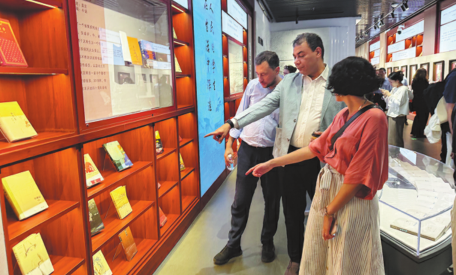
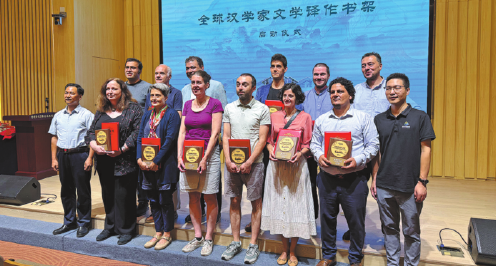
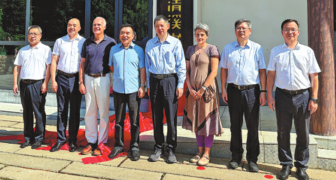
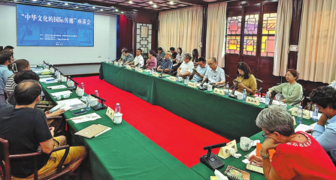
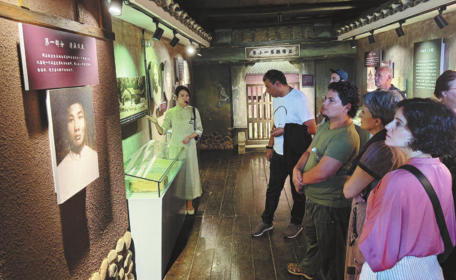
Today's Top News
- Xi hears report from Macao SAR chief executive
- Xi hears report from HKSAR chief executive
- UN envoy calls on Japan to retract Taiwan comments
- Innovation to give edge in frontier sectors
- Sanctions on Japan's former senior official announced
- Xi stresses importance of raising minors' moral standards






























